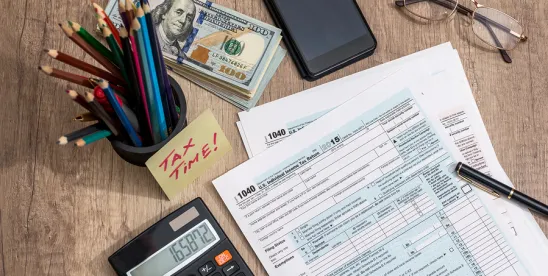On 4 May 2021, Governor Inslee signed Engrossed Substitute Senate Bill 5096 (the Act), establishing a state-level tax on long-term capital gains for Washingtonians, beginning 1 January 2022.
TAX RATE AND BASE
The new tax is assessed at a rate of seven percent on an individual’s Washington capital gains. Washington capital gains are defined as an individual’s net long-term capital gains for federal income tax purposes, subject to adjustments for certain long-term capital gains and losses and certain federal loss carryforwards, as described below. Transactions that do not give rise to long-term capital gains that are subject to federal income tax, such as tax-free mergers, transfers to partnerships and gains from sales of qualified small business stock, are not subject to the Washington capital gains tax.
ALLOCATION OF PROPERTY, RESIDENCY, AND ATTRIBUTION OF OWNERSHIP
Gains from the sale or exchange of tangible and intangible personal property allocated to Washington are taxable. Gains are allocated to the state of Washington based on the location of the property sold or exchanged, the domicile of the taxpayer, and the effect of other income and excise taxes.
For purposes of allocating gains based on a taxpayer’s domicile, the Act generally follows Washington’s existing domicile rules, although individuals domiciled in Washington are considered to be the beneficial owners of their proportionate share of long-term capital assets held by pass-through entities (including partnerships, S corps and disregarded entities). Trusts are not subject to the Washington capital gains tax (except with respect on sales of tangible property located in this state), unless (i) the trust’s grantor both is a Washington resident and is taxed on the trust’s income for federal income tax purposes under the so-called grantor trust rules, or (ii) the trust constitutes an incomplete gift of the trust assets because the Washington resident grantor holds the power to revoke the trust or retains other powers over the trust that would cause the trust assets to be included in the grantor’s estate for estate tax purposes.
EXEMPTIONS
The following are exempt from the newly enacted tax:
-
All sales or transfers of real estate (specially defined in the Act) by deed, real estate contract, judgment, or other lawful instruments that transfer title and are filed as public record with the county in which the real property is located;
-
Gains from the sale of any interest in a privately held entity, but only to the extent that any long-term capital gain or loss from such sale or exchange is directly attributable to real estate owned directly by such entity – gains or losses on real estate owned indirectly by such entity are not considered; and
-
Gains on certain eligible assets, including assets held in retirement accounts, assets transferred in connection with condemnation proceedings, certain breeding livestock, certain depreciable property used in a trade or business, timber and timberlands, commercial fishing privileges, and goodwill received from the sale of an auto dealership.
DEDUCTIONS AND CREDITS
Deductions under the new tax are limited to:
-
US$250,000 standard deduction per individual. Note: Married couples are considered a single individual for purposes of determining this deduction regardless of whether filing singly or jointly;
-
Amounts that the state is prohibited from taxing under the Washington State Constitution or under federal law or the United States Constitution;
-
The amount of Washington capital gains resulting from the sale of “substantially all” (defined as at least ninety percent) of the fair market value of the assets of, or the transfer of substantially all of the taxpayer’s interest in, a qualified family-owned small business provided that certain qualifications (including, among others, annual gross receipts of less than US$10,000,000) are met; and
-
Certain qualified charitable contributions to the extent that such contributions exceed US$250,000, limited to a maximum charitable contribution deduction of US$100,000.
Credits are available against the Washington state capital gains tax for:
-
Any Washington state business and occupation tax; and
-
Any non-Washington excise taxes paid on a transaction that is also subject to the capital gains tax.
Such credits may not reduce an individual’s Washington state capital gains tax liability below zero.
FILING REQUIREMENTS
Only individuals who owe Washington state capital gains tax will be statutorily required to file. The Department of Revenue is not authorized to expand filing requirements to include informational returns from non-owing taxpayers. Taxpayers must file under the same status as their U.S. federal income tax returns (e.g., a taxpayer who filed federal income tax as married filing jointly must file a joint Washington state capital gains tax return if owing Washington state capital gains tax).
Individuals claiming an exemption for the sale or exchange of an interest in a privately held entity must also file documentation to support (1) the fair market value of the real estate held by the entity in which the interest was sold or exchanged, (2) the percentage of ownership interest sold or exchanged, and (3) the methodology, if any, for allocating gains or losses from the sale of real estate to owners, partners, or shareholders of the entity.
CHALLENGES TO THE TAX
Throughout the legislative session, debate focused on whether the capital gains tax is in fact a graduated income tax (this is prohibited under the Washington State Constitution). Proponents of the tax characterized it as an excise tax on the sale or exchange of capital assets. Opponents continued to argue that it is in fact an income tax. Indeed, a lawsuit has already been filed by former Washington Attorney General Rob McKenna. The lawsuit asserts that the tax is a personal income tax and violates both the Washington State and the U.S. Constitutions.
Because the bill included an emergency clause, opponents of the capital gains tax are not able to use a referendum measure to place the tax on the ballot in November 2021. However, the possibility of a future initiative to modify or eliminate the tax remains possible.
FINAL THOUGHTS
The Act presents new challenges in tax planning for high net worth individuals.






 />i
/>i

